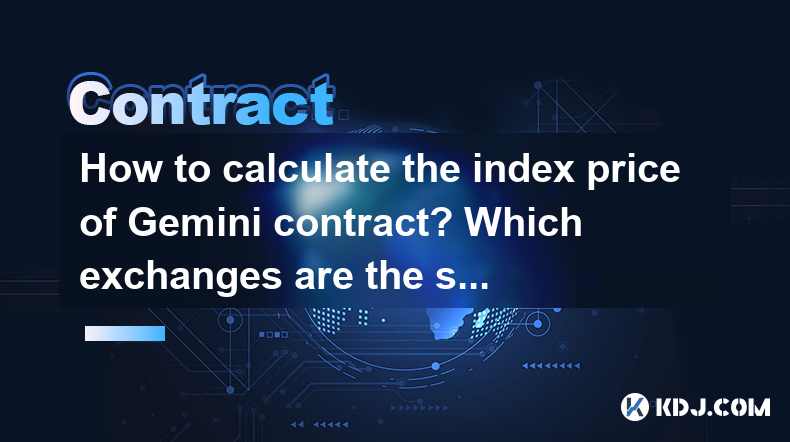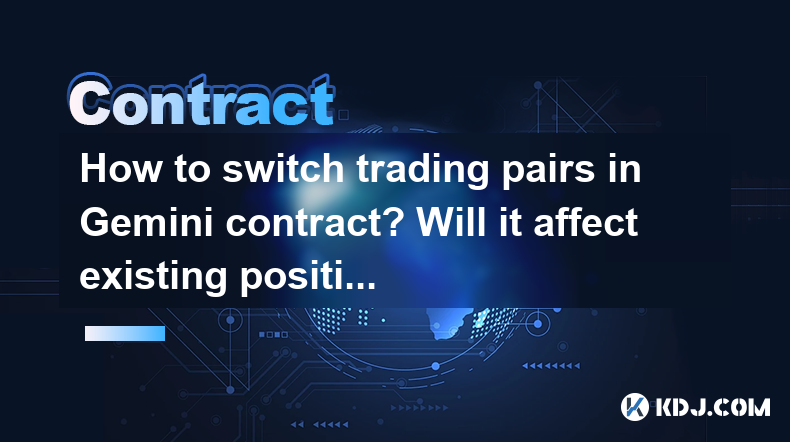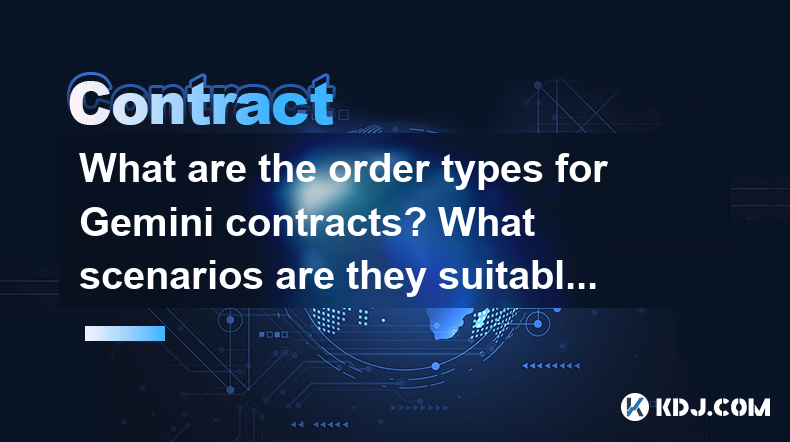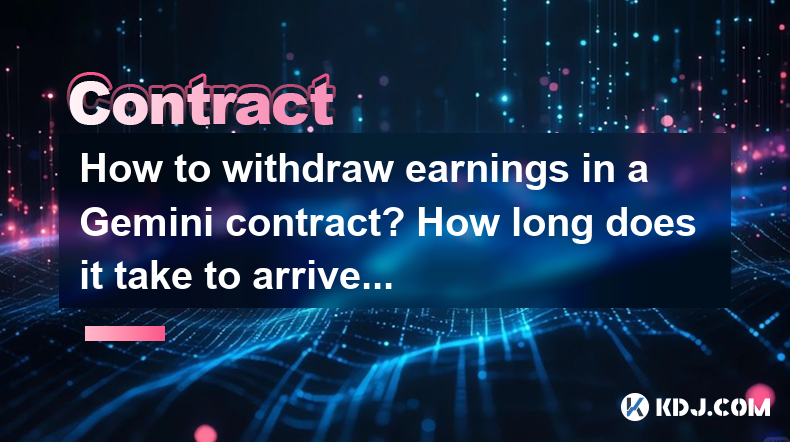-
 Bitcoin
Bitcoin $96,388.1961
-1.25% -
 Ethereum
Ethereum $1,834.3885
-0.66% -
 Tether USDt
Tether USDt $1.0003
0.01% -
 XRP
XRP $2.2095
-1.18% -
 BNB
BNB $598.1758
-0.27% -
 Solana
Solana $148.2761
-1.94% -
 USDC
USDC $1.0000
0.02% -
 Dogecoin
Dogecoin $0.1784
-2.17% -
 Cardano
Cardano $0.7183
0.59% -
 TRON
TRON $0.2479
0.71% -
 Sui
Sui $3.3384
-3.89% -
 Chainlink
Chainlink $14.4264
-2.27% -
 Avalanche
Avalanche $20.8592
-2.74% -
 Stellar
Stellar $0.2726
-2.05% -
 UNUS SED LEO
UNUS SED LEO $8.9247
0.53% -
 Toncoin
Toncoin $3.1677
-0.59% -
 Shiba Inu
Shiba Inu $0.0...01321
-2.51% -
 Hedera
Hedera $0.1834
-2.12% -
 Bitcoin Cash
Bitcoin Cash $366.5204
-2.08% -
 Hyperliquid
Hyperliquid $20.6726
-1.42% -
 Litecoin
Litecoin $86.8365
-1.93% -
 Polkadot
Polkadot $4.1112
-2.66% -
 Dai
Dai $1.0001
0.01% -
 Bitget Token
Bitget Token $4.3783
-0.69% -
 Monero
Monero $276.0268
-3.60% -
 Ethena USDe
Ethena USDe $1.0008
-0.01% -
 Pi
Pi $0.5866
-1.97% -
 Pepe
Pepe $0.0...08427
-4.43% -
 Uniswap
Uniswap $5.1718
-2.10% -
 Aptos
Aptos $5.2254
-4.76%
Does LBank contracts support cross-currency margin? How to use other assets for collateral?
LBank supports cross-currency margin for futures, allowing traders to use various cryptocurrencies as collateral, enhancing flexibility and risk management.
May 03, 2025 at 11:14 am

Understanding Cross-Currency Margin on LBank Contracts
LBank, a prominent cryptocurrency exchange, offers a variety of trading options to its users, including futures contracts. One of the features that traders often look for is the ability to use cross-currency margin. This feature allows traders to use assets other than the base currency of the contract as collateral. In this article, we will explore whether LBank supports cross-currency margin for its contracts and how to use other assets for collateral.
Does LBank Support Cross-Currency Margin?
As of the latest updates, LBank does support cross-currency margin for its futures contracts. This means that traders can use a variety of cryptocurrencies as collateral, not just the currency in which the contract is denominated. This flexibility can be advantageous for traders who hold multiple types of cryptocurrencies and want to maximize their trading potential without having to convert all their assets into a single currency.
How to Use Other Assets for Collateral on LBank
Using other assets for collateral on LBank is a straightforward process, but it requires a few steps to set up properly. Here’s a detailed guide on how to do it:
Log into your LBank account: Ensure that you have an active and verified account on LBank. If you don’t have an account, you’ll need to sign up and complete the verification process.
Navigate to the Futures Trading Section: Once logged in, go to the futures trading section of the LBank platform. This can usually be found in the main menu under "Futures" or "Derivatives."
Select the Contract You Want to Trade: Choose the specific futures contract you are interested in trading. Make sure that the contract supports cross-currency margin, as not all contracts may offer this feature.
Access the Margin Settings: Within the trading interface for the selected contract, look for the margin settings or collateral management section. This is typically found in the settings or account management area.
Choose Your Collateral Asset: In the margin settings, you should see an option to select the asset you want to use as collateral. LBank allows you to choose from a list of supported cryptocurrencies. Select the asset you wish to use.
Adjust the Collateral Amount: After selecting the asset, you can adjust the amount of that asset you want to allocate as collateral. Ensure that the amount you set is sufficient to meet the margin requirements of the contract you are trading.
Confirm and Start Trading: Once you have set your collateral, confirm the settings and start trading. The platform will automatically use the collateral you have set up to manage your margin requirements.
Benefits of Using Cross-Currency Margin
Using cross-currency margin on LBank offers several benefits to traders:
Increased Flexibility: Traders can leverage their existing portfolio of cryptocurrencies without needing to convert them into a single currency. This can be particularly useful for those holding a diverse range of assets.
Risk Management: By spreading the collateral across different cryptocurrencies, traders can potentially reduce their risk exposure. If one cryptocurrency's value drops significantly, the impact on the overall margin may be mitigated by the performance of other assets.
Capital Efficiency: Traders can use their entire portfolio more efficiently, as they are not limited to using only the base currency of the contract. This can lead to better capital utilization and potentially higher returns.
Considerations When Using Cross-Currency Margin
While cross-currency margin offers many advantages, there are also some considerations that traders should keep in mind:
Volatility: Cryptocurrencies are known for their volatility. Using multiple cryptocurrencies as collateral can increase the complexity of managing your margin, as you need to monitor the value of multiple assets.
Liquidity: Ensure that the assets you use as collateral are sufficiently liquid. If the market for a particular cryptocurrency is illiquid, it may be difficult to liquidate your collateral quickly if needed.
Margin Requirements: Different contracts may have different margin requirements. Make sure you understand the specific requirements for the contract you are trading and that your collateral meets these requirements.
Managing Your Collateral on LBank
Once you have set up cross-currency margin, it’s important to actively manage your collateral to ensure that your positions remain adequately funded. Here are some tips for managing your collateral:
Monitor Your Collateral Value: Regularly check the value of your collateral to ensure it meets the margin requirements. If the value of your collateral drops, you may need to add more or adjust your positions.
Rebalance Your Portfolio: As the market conditions change, you may need to rebalance your portfolio of collateral assets to maintain an optimal risk-reward profile.
Use Stop-Loss Orders: Implementing stop-loss orders can help protect your positions from significant losses, which can be particularly important when using multiple assets as collateral.
Frequently Asked Questions
Q: Can I change the collateral asset after setting it up on LBank?
A: Yes, you can change the collateral asset on LBank. To do so, go to the margin settings within the futures trading section, and you can adjust or replace the collateral asset as needed. Make sure to review the impact on your margin requirements before making changes.
Q: Are there any fees associated with using cross-currency margin on LBank?
A: LBank may charge fees for using cross-currency margin, which can include margin interest and transaction fees. It’s important to review the fee schedule on the LBank website to understand the costs involved.
Q: How does LBank handle liquidations when using cross-currency margin?
A: In the event of a liquidation, LBank will automatically liquidate the collateral assets starting with the asset that has the highest value in the collateral pool. The platform aims to minimize losses by liquidating assets in an order that maximizes the recovery of the margin.
Q: Can I use stablecoins as collateral on LBank?
A: Yes, LBank supports the use of stablecoins as collateral for futures contracts. Stablecoins can provide a more stable value compared to other cryptocurrencies, making them a popular choice for collateral.
Disclaimer:info@kdj.com
The information provided is not trading advice. kdj.com does not assume any responsibility for any investments made based on the information provided in this article. Cryptocurrencies are highly volatile and it is highly recommended that you invest with caution after thorough research!
If you believe that the content used on this website infringes your copyright, please contact us immediately (info@kdj.com) and we will delete it promptly.
- Generative Adversarial Networks for Detecting Integer Overflow Vulnerabilities in Smart Contracts
- 2025-05-03 22:55:13
- Arizona state will not hold Bitcoin (BTC) as official reserves
- 2025-05-03 22:55:13
- Bitcoin Approaches Major Test As It Tracks Gold's Path
- 2025-05-03 22:50:13
- SHIB Price Prediction: Shiba Inu (SHIB) Could Reach a Market Cap of $1T, Stuns Investors
- 2025-05-03 22:50:13
- Bitcoin May Be Entering Its Most Bullish Phase Since 2020 – Here is Why
- 2025-05-03 22:45:13
- CME Group's Cryptocurrency Derivatives Market Posted a Steep Increase in Trading Activity in April
- 2025-05-03 22:45:13
Related knowledge

How to adjust the leverage in Gemini contract? Will it affect the current order?
May 02,2025 at 08:07pm
Introduction to Leverage in Gemini ContractsGemini, a well-known cryptocurrency exchange, offers futures contracts that allow traders to speculate on the future price of cryptocurrencies. One of the key features of these contracts is the ability to use leverage, which can amplify both potential gains and losses. Leverage in Gemini contracts refers to th...

How to calculate the index price of Gemini contract? Which exchanges are the sources?
May 03,2025 at 02:28am
The index price of a Gemini contract is a crucial metric used to determine the fair value of a cryptocurrency futures contract on the Gemini exchange. This index price is calculated using a methodology that aims to provide a reliable and transparent reference price for traders and investors. In this article, we will delve into the specifics of how the i...

How to switch trading pairs in Gemini contract? Will it affect existing positions?
May 02,2025 at 01:43am
Switching trading pairs in the Gemini contract can be a crucial aspect of managing your cryptocurrency portfolio. This guide will walk you through the process of switching trading pairs and discuss whether this action will affect your existing positions. Understanding these elements is essential for effective trading on the Gemini platform. Understandin...

What are the order types for Gemini contracts? What scenarios are they suitable for?
May 03,2025 at 10:42pm
Gemini, a well-known cryptocurrency exchange, offers a variety of order types for trading contracts. Understanding these order types and their suitable scenarios can help traders execute their strategies more effectively. This article will delve into the different order types available on Gemini for contracts and explore the scenarios in which they are ...

How to modify the security settings of a Gemini contract? What measures are recommended?
May 02,2025 at 06:35pm
Modifying the security settings of a Gemini contract and implementing recommended security measures are crucial steps in safeguarding your cryptocurrency assets. This article will guide you through the process of adjusting security settings on the Gemini platform and outline the best practices for maintaining the highest level of security for your contr...

How to withdraw earnings in a Gemini contract? How long does it take to arrive?
May 03,2025 at 12:56pm
Withdrawing earnings from a Gemini contract involves a series of steps that ensure your funds are transferred securely and efficiently. In this article, we will guide you through the process of withdrawing your earnings from a Gemini contract, and we will also discuss the expected time frame for the funds to arrive in your account. Understanding Gemini ...

How to adjust the leverage in Gemini contract? Will it affect the current order?
May 02,2025 at 08:07pm
Introduction to Leverage in Gemini ContractsGemini, a well-known cryptocurrency exchange, offers futures contracts that allow traders to speculate on the future price of cryptocurrencies. One of the key features of these contracts is the ability to use leverage, which can amplify both potential gains and losses. Leverage in Gemini contracts refers to th...

How to calculate the index price of Gemini contract? Which exchanges are the sources?
May 03,2025 at 02:28am
The index price of a Gemini contract is a crucial metric used to determine the fair value of a cryptocurrency futures contract on the Gemini exchange. This index price is calculated using a methodology that aims to provide a reliable and transparent reference price for traders and investors. In this article, we will delve into the specifics of how the i...

How to switch trading pairs in Gemini contract? Will it affect existing positions?
May 02,2025 at 01:43am
Switching trading pairs in the Gemini contract can be a crucial aspect of managing your cryptocurrency portfolio. This guide will walk you through the process of switching trading pairs and discuss whether this action will affect your existing positions. Understanding these elements is essential for effective trading on the Gemini platform. Understandin...

What are the order types for Gemini contracts? What scenarios are they suitable for?
May 03,2025 at 10:42pm
Gemini, a well-known cryptocurrency exchange, offers a variety of order types for trading contracts. Understanding these order types and their suitable scenarios can help traders execute their strategies more effectively. This article will delve into the different order types available on Gemini for contracts and explore the scenarios in which they are ...

How to modify the security settings of a Gemini contract? What measures are recommended?
May 02,2025 at 06:35pm
Modifying the security settings of a Gemini contract and implementing recommended security measures are crucial steps in safeguarding your cryptocurrency assets. This article will guide you through the process of adjusting security settings on the Gemini platform and outline the best practices for maintaining the highest level of security for your contr...

How to withdraw earnings in a Gemini contract? How long does it take to arrive?
May 03,2025 at 12:56pm
Withdrawing earnings from a Gemini contract involves a series of steps that ensure your funds are transferred securely and efficiently. In this article, we will guide you through the process of withdrawing your earnings from a Gemini contract, and we will also discuss the expected time frame for the funds to arrive in your account. Understanding Gemini ...
See all articles




















































































